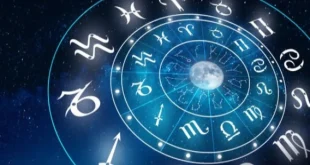
Supreme Court on Hindu Marriage: The Supreme Court has said that youth should keep in mind the sanctity of the institution before marriage. The court said that Hindu marriage is a sacrament which has its own sanctity. According to the Supreme Court, marriage is not an event of 'dancing, singing' and 'eating and drinking'. The court said that mere registration does not make a marriage valid. For the marriage to take place, it is necessary to follow all the rituals (mantra chanting, Saptapadi etc.). A bench of Justices BV Nagarathna and Augustine George Masih said all couples should ensure participation in the prevalent customs and ceremonies prescribed in Section 7 of the Hindu Marriage Act, 1955. It is also the responsibility of the priest performing the marriage to ensure this. That the bride and groom complete all the rituals. The court made this comment during the hearing on a wife's petition. The woman has demanded transfer of the divorce proceedings. While the trial was still ongoing, the husband and wife jointly declared that their marriage was not valid. Claimed that he has not had any marriage as he has not performed any customs, rites or rituals. However, due to certain circumstances and pressures they had to register the marriage. The Supreme Court ruled that there was no valid marriage, finding that no marriage had actually taken place. During the hearing, the Supreme Court made some important comments related to Hindu marriage. Read 5 important comments of the Supreme Court.
- Hindu marriage is a sacrament and religious ritual that deserves its status as an institution of great value in Indian society. Therefore, we urge young men and women to think deeply about the institution of marriage and how sacred this institution is in Indian society.
- 'Marriage is not an occasion for 'singing and dancing' and 'eating and drinking' or demanding dowry and gifts and transacting through undue pressure. Marriage is not a commercial transaction. This is a sacred installation ceremony.
- The Supreme Court also referred to cases where couples registered their marriage under Section 8 of the Hindu Marriage Act for 'practical reasons', even though the marriage was not actually solemnized. The court warned on this and said that mere registration does not make a marriage valid. The court urged not to trivialize the institution of marriage.
- 'Besides providing a mechanism for registration of marriage to confer the status of a married couple and confer personal and permanent rights, the Hindu Marriage Act, 1955 has given a special place to rites and ceremonies. This means that the important conditions for the Hindu marriage ritual must be followed with utmost devotion, strictness and righteousness.'
- 'Honest conduct and participation in the rituals and ceremonies under Section 7 of the Hindu Marriage Act, 1955 must be ensured by all married couples and the priests performing the ceremonies.'
 look news india
look news india
